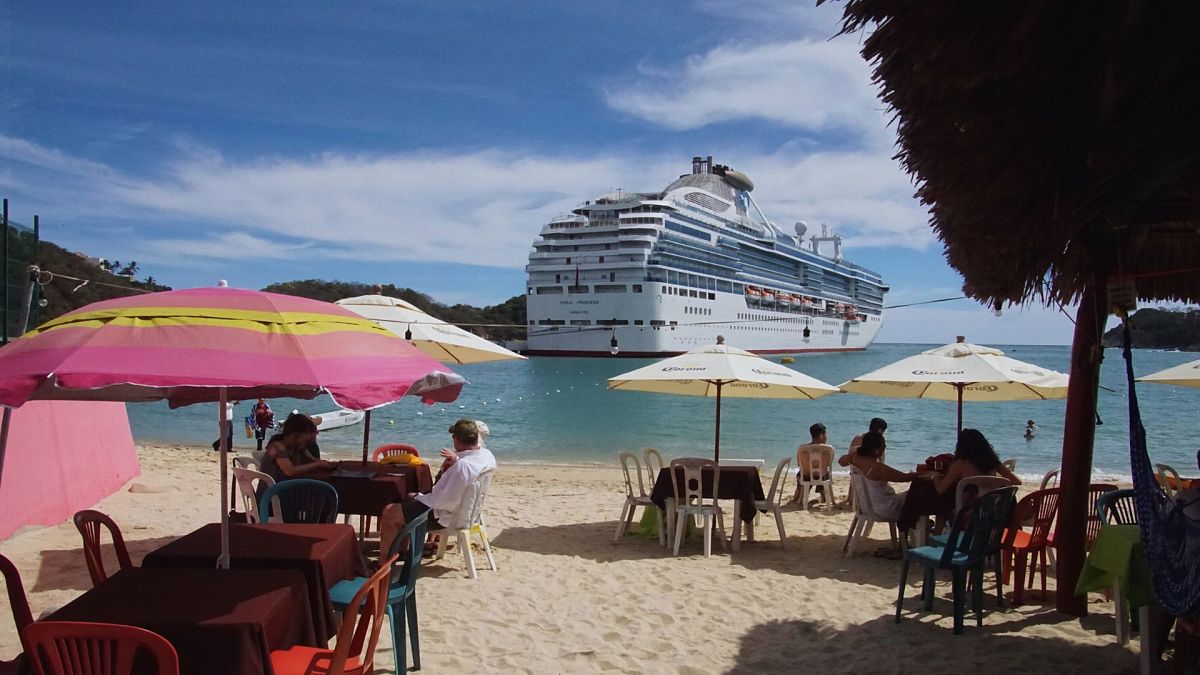Every passenger entering Mexico by cruise ship may soon be charged a $42 tax (€39.90) - whether they disembark or not.
The law is the latest effort to curb overtourism in the country. Historically, Mexico’s tourist taxes have targeted hotel visitors, while cruise ship travellers who are deemed ‘in transit’ have been exempt.
Announced after a vote by Mexico’s congress, two-thirds of Mexico’s proposed cruise passenger tax would be used to fund the Mexican army.
The law, which would apply from 2026, still needs to be approved by the upper house. However, the tax, which is being called an ‘immigration document payment for foreign passengers,’ is expected to help cover the country’s enormous budget deficit.
Who will be affected by the new cruise passenger tax in Mexico?
The Mexican ports of Cozumel, Costa Maya and Cabo San Lucas are popular stops for Caribbean cruises, particularly for ships departing from Florida, Texas, and Los Angeles.
The fee is likely to be added to passengers’ total cruise ticket cost rather than absorbed by cruise companies.
Over 10 million passengers visit Mexico by cruise ship every year, with 3,300 cruise ship arrivals predicted for 2025, according to the Florida and Caribbean Cruise Association (FCCA).
The port of Cozumel receives more than half of all Mexico’s seafaring passengers and is dubbed the ‘cruise capital of the world’: It welcomes around four million cruise passengers per year, making it one of the world's busiest ports.
Some Mexican states, such as the Quintana Roo ports, will already start charging cruise passengers a $5 (€4.75) tax from 1 January 2025 to fund a National Disaster Prevention Fund. Therefore, under the new law, cruise passengers in this region would need to pay a total tax of $47 (€44.69).
While most travel passenger taxes go directly to improving infrastructure, such as port facilities or implementing more sustainable fleets, it is not clear why the new Mexico tax is being earmarked for the country’s defence department - however, the Mexican army has previously built railways within the country.
The cruise ship industry is against Mexico’s proposed immigration levy
Many of the major industry players warn that these new charges will deter ships from docking in Mexico and instead opt for cheaper Caribbean cruise destinations.
Jamaica is one possible alternative: despite already charging a $20 (€19.01) tax per passenger, it’s still competitively priced.
“If this measure is implemented, it would make Mexican ports of call among the most expensive in the world, severely affecting their competitiveness with other Caribbean destinations,” the Mexican Association of Shipping Agents said in a statement.
Likewise, a public letter from the Florida and Caribbean Cruise Association (FCCA), which represents 23 major cruise lines, said that it would make Mexico 213 per cent more expensive than the average Caribbean port.
The FCCA stated that the tax is making them actively consider “significantly altering itineraries”.
This is no idle threat - almost two decades ago, the cruise industry repositioned ships and rerouted itineraries to avoid a hefty ‘head tax’ imposed at Alaskan ports.
The tax “could also jeopardize the cruise industry’s investments in the country, including billions in planned developments and other projects,” the FCCA cautions.
Cruise company Royal Caribbean International, for example, is planning to open a private beach club in Cozumel in 2026, followed by a water park attraction called Perfect Day Mexico in 2027 near the Costa Maya cruise port.
Mexico is one of several countries to introduce cruise initiatives amid overtourism concerns
The number of global ocean cruise passengers is on the rise. The Caribbean, Bahamas, and Bermuda are the most popular cruise destinations.
In 2023, there were 31.8 million passengers worldwide - but that number is estimated to reach 39.4 million by 2027, according to Statista.
Several popular cruise destinations in Europe have introduced fees to tackle overtourism, including Amsterdam, and the Greek Islands of Mykonos and Santorini during the summer months.
An increasing number of Caribbean countries, including the Bahamas and Barbados, have already implemented passenger departure taxes to fund environmental and sustainability goals.


